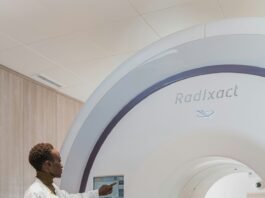Understanding the Challenge in Cancer Treatment
The field of cancer treatment is witnessing unprecedented advancements, yet it concurrently faces heightened complexity when it comes to selecting personalized therapies. With the continuous influx of novel cancer treatment options, healthcare professionals are presented with an ever-expanding array of choices. This rapid evolution necessitates a thorough understanding of each therapy’s effectiveness, alongside a patient’s unique biological characteristics, including tumor heterogeneity and genetic markers.
One significant challenge arises from the diversity of tumor types and their individual responses to treatments. Not every patient reacts similarly to a given therapy, which makes it crucial for oncologists to evaluate tumor characteristics meticulously to ascertain the most suitable treatment plan. Factors such as mutation profiles, histology, and biomarkers can drastically influence therapeutic efficacy. Failure to accurately identify the optimal therapy can lead to suboptimal patient outcomes, including disease progression and avoidable treatment-related toxicities.
Moreover, the clinical landscape is further complicated by the myriad of available clinical guidelines, all of which are continuously updated to reflect new evidence. Oncologists must navigate these guidelines while incorporating patient-specific factors to make informed decisions. This intricate decision-making process is amplified when physicians consider the variations in drug approval statuses and emerging therapies that may not be universally accessible.
Therefore, the challenge lies in balancing the vast and complex information with personalized patient care. To improve treatment decisions, integrating innovative solutions such as deep learning approaches like Flexynesis can enhance the analysis of patient data and treatment options. By embracing technological advancements, healthcare professionals can aspire to mitigate the risk of misidentified therapies and overall improve patient outcomes.
Introducing Flexynesis: The Solution for Precision Oncology
Flexynesis represents a groundbreaking advancement in the domain of precision oncology, developed by a team of dedicated researchers at the Max Delbrück Center. The toolkit has been meticulously crafted to meet the increasing demand for personalized cancer treatment solutions that are both effective and efficient. As the complexities of cancer become more pronounced, traditional treatment methodologies often fall short, particularly when it comes to tailoring therapies to individual patient profiles. Flexynesis aims to bridge this critical gap by harnessing the power of deep learning technology, providing healthcare professionals with the tools necessary to offer more targeted treatment options.
The design intentions behind Flexynesis are both ambitious and insightful. At its core, the toolkit is built to facilitate the comprehensive analysis of vast amounts of patient data—from genetic information and medical histories to treatment outcomes. This holistic approach ensures that oncologists can gain a clearer understanding of each patient’s unique cancer characteristics, thereby improving the selection of targeted therapies. Technologically, Flexynesis integrates advanced machine learning algorithms that can detect subtle patterns in data that may otherwise be overlooked by conventional tools.
Flexynesis stands apart from existing solutions in its versatility and robustness. Unlike many standard applications that may focus on isolated datasets or specific features of cancer, Flexynesis is designed to be a comprehensive framework capable of adjusting to various oncology scenarios. This flexibility allows researchers and clinicians alike to derive actionable insights from a diverse range of patient profiles. By effectively leveraging deep learning methodologies, Flexynesis not only enhances the analytical capabilities within the field of oncology but also sets a new standard for innovation in personalized medicine.
Key Features of Flexynesis: A Comprehensive Tool for Clinicians
Flexynesis represents a groundbreaking advancement in the field of cancer treatment, primarily through its innovative approach to deep learning and multimodal data analysis. One of the standout features of Flexynesis is its ability to assimilate diverse data types seamlessly. This includes not just multi-omics information—such as genomics, proteomics, and metabolomics—but also medical imaging and textual data from clinical reports. By unifying these various data sources, Flexynesis provides clinicians with a more holistic view of patient health, leading to improved diagnostic and therapeutic decisions.
The user-friendly nature of Flexynesis makes it especially accessible to healthcare providers who may not possess extensive expertise in deep learning. The toolkit is designed to be intuitive, allowing users to leverage powerful analytical capabilities without needing a background in data science. This democratization of technology ensures that clinicians can focus on patient care rather than spending excessive time on complex data interpretations. Flexynesis simplifies the analytical process, making it easy for users to retrieve insights that are critical for patient management.
Moreover, the ease of integration into existing clinical workflows is a crucial feature of Flexynesis. Many healthcare institutions are hesitant to adopt new technologies due to concerns about compatibility and the potential disruption to established processes. Flexynesis addresses these issues by allowing straightforward integration with many Electronic Health Records (EHR) systems and existing imaging databases. Consequently, healthcare professionals can begin utilizing Flexynesis’ capabilities without overhauling their entire operational framework.
In essence, Flexynesis stands out as an essential tool for clinicians looking to enhance their cancer treatment approaches through advanced deep learning techniques. Its remarkable capability to analyze multimodal data in a user-friendly, accessible format paves the way for more effective patient outcomes and encourages the continual evolution of cancer treatment strategies.
Real-world Impact and Future Directions of Flexynesis
Flexynesis represents a transformative step in the realm of cancer treatment, leveraging deep learning technologies to enhance clinical applications. Its potential to identify various cancer types accurately positions it as an invaluable asset in oncological diagnostics. By analyzing multi-omics data, Flexynesis can deliver precision-driven insights, guiding medical professionals in making informed decisions tailored to individual patient needs. This approach significantly diversifies the methods available for treatment efficacy assessments, offering a comprehensive understanding of how different therapeutic options may affect unique patient profiles.
A crucial application of Flexynesis lies in its ability to predict patient survival rates, enabling healthcare providers to develop optimal, personalized treatment strategies. By integrating patient-specific data alongside treatment modalities, Flexynesis not only enhances the accuracy of survival predictions but also improves overall patient outcomes. As this technology continues to evolve, its implementation in clinical settings presents substantial opportunities for advancing patient care by ensuring that interventions are data-driven and individualized.
However, despite these promising advancements, the integration of Flexynesis into routine clinical practice faces hurdles, particularly within the German healthcare system. One significant challenge is the standardization and collection of multi-omics data, which is critical for the successful functioning of Flexynesis. The lack of a streamlined process can hinder the tool’s efficacy and limit its implementation. To overcome these obstacles, a concerted effort is necessary to improve data accessibility and develop robust protocols that facilitate the integration of multi-omics data into daily clinical workflows. Bridging this gap is essential for harnessing the full potential of Flexynesis, ultimately paving the way for advancements in personalized cancer care and improved patient outcomes in the future.


